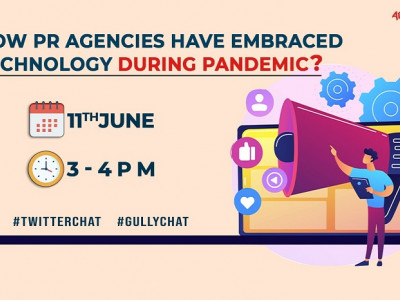How women leaders are showing the way in handling crises in the new normal
We, in India, watched with considerable pride when Kamala Harris took oath as the first female Vice President of America earlier this year. There have been umpteen reports on how nations led by women leaders dealt with the COVID-19 crisis in a more efficient manner – be it New Zealand, Germany, Finland, Iceland, Denmark, Norway and Taiwan.
Innate qualities of women – nurturing, empathetic, multi-tasking – are the leadership traits that are increasingly being adopted cutting across gender. For long, there have been calls for making the top echelons of organisations more inclusive, gender sensitive and having a greater representation of women.
The pandemic period has seen women leaders flourishing as they deftly handled not just their companies and teams, but also their homes and families.
A challenging year like 2020 has taught us several harsh lessons and also showcased the inner strength of women leaders. There are some new qualities and skillsets that we have seen coming into prominence during the tough times.
The latest episode of Adgully’s prime property, #TwitterChat, was about ‘Analysing the Essence of a True Woman Leader’. The discussion took place on Friday, February 19, 2021 between 3 pm and 4 pm.
Joining in the discussions were some of the nation’s leading women leaders:
Sheetal Singh, Director, Corporate Affairs, Flipkart
Kulpreet Freddy Vesuna, Founder & MD, ImpactPR
Ambika Sharma, Founder and MD, Pulp Strategy
Shradha Agarwal, COO and Strategy Head, Grapes Digital
Poulomi Roy, CMO, RSH Global
Sonia Singh, Co-Founder, Director-Growth, Collectcent
Charu Raizada, Communication Strategist; Council Member, WICCI PR & Digital Marketing
Saraswathi Anand, GM - Marketing, News18 India
Priti Murthy, CEO, OMD India
Leadership traits in the new normal
And we begin with our #TwitterChat on "Analysis The Essence Of A True #WomanLeader"
Here's our first question of the day 😄
.@ambikasharma .@charuraizada .@KulpreetImpact .@PoulomiRoy13 .@pritimt .@sarasanand .@catchsheetal .@soniasingh09 .@shrads_agarwal#GullyChat pic.twitter.com/bTscqH70DE
The panellists commenced the discussion by identifying some of the key leadership traits they have observed in the new normal.
Mentioning patience and empathy as key factors, Priti Murthy said, “A lot of patience. Whether it is technical glitches or gaining a deep understanding of people and processes remotely – Patience is truly a virtue. This also helps build empathetic communication and enables productivity without stress.”
Agreeing with Murthy, Sheetal Singh added, “I think for me it will be emotional and situational intelligence and greater consideration for your teams and putting trust ahead of all other things.”
Further emphasising on trust and mindfulness as traits that are here to stay, Charu Raizada remarked, “Trust, with emphasis on remote working transparency on decisions, and Mindfulness to check both self and others’ behaviour, attitude & actions, along with Resilience and Agility are here to stay.”
Giving her perspective on the leader in the new normal, Sonia Singh observed, “‘Being Human is one trait stands out. Unlike other times, reasonable level of emotional intelligence worked miraculously in these times. Empathetic guidance to the team has been very important as well.”
Meanwhile, for Sheetal Singh, giving a pat on the back and recognising the efforts of each other is equally important. “While working remotely, it is important to repose trust in your teams and make it a two-way street. The era of micro-managers is gone,” she affirmed.
Kulpreet Freddy Vesuna’s advice was, “Express yourself, do not limit yourself to the need of connecting face to face. Authentic expression is a win always.” She laid stress on being a good listener as a key trait and added, “Be open and receptive, give a listening ear to your teams.”
According to Saraswathi Anand, “The trait that one needs to readily inculcate now is empathy. I feel that this is the most immediate requirement.”
Mentioning the three essential traits for herself, Shradha Agarwal said, “Ownership, Agility and Communication are my three top picks as leadership traits for the new normal, as you need to do more to drive your clients as well as your employees.”
Ambika Sharma and Poulomi Roy noted Patience, Resilience, Empathy and a fun attitude as the leadership traits that have worked well in the new normal.
Handling crisis like a boss
Moving on to our second question... What's your perspective on this? 🤔
.@ambikasharma .@charuraizada .@KulpreetImpact .@PoulomiRoy13 .@pritimt .@sarasanand .@catchsheetal .@soniasingh09 .@shrads_agarwal#GullyChat #TwitterChat #WomenLeaders pic.twitter.com/pboppZK7XI
When it came to some of the unique ways in which women leaders solved problems and handled crisis, Ambika Sharma noted, “Multi-tasking is a strength, while being empathetic and focused on solutions are also good traits. Women build these traits and bring them to the boardroom.”
Meanwhile, Priti Murthy opined these unique skills were gender agnostic. Rather these traits develop through experience and with strong support. “As long as you know that you have a solid team and organisation backing you, the problem becomes that much easier,” she added.
Talking about readiness as a key factor, Saraswathi Anand commented, “I personally think we are great at making a good, workable plan. But we need to have the readiness to deploy the plan.”
Adding to this, Kulpreet Freddy Vesuna said, “Handling crisis is a life skill which needs to be learnt, however women have the ability to cope up with stress in a better way, which helps them to deal with such situations. Problem solving is a life skill and it comes naturally to most women, and if you can utilise that in the work area, it helps you lead efficiently.”
Highlighting some the unique skills that women posses, Shradha Agarwal said, “I genuinely believe women look at a problem from multiple angles – obtuse or acute; and always come back with a process that can avoid the same in the future.”
Charu Raizada, too, noted that women leaders intuitively know how to develop clear thinking, getting rid of the cobwebs. They are wired to handle transitions by virtue of handling constant change in their lives, challenging the status quo.
“Problem solving needs collaborating and communicating effectively, which women do well” said Sonia Singh, adding, “Crisis needs interpersonal emotion management and women carry the trait of relational intelligence, posing both intuitive and rational decision-making skills.”
Sheetal Singh added here that irrespective of the gender, leaders need to be sensitive and understanding of the stress, anxiety, and frustration that their teams could be facing. “Leaders must strive to meet those needs. Women may inherently do it better though,” she affirmed.
Wrapping up the round of answers, Poulomi Roy, on a different note, said that women solved problems and handled crisis exactly the way a man does. “I guess unique ways depends from person to person and not gender to gender,” she added.
Catch the complete conversation on Twitter and follow @adgully for more #TwitterChats every Friday, between 3 pm and 4 pm.


























Share
Facebook
YouTube
Tweet
Twitter
LinkedIn